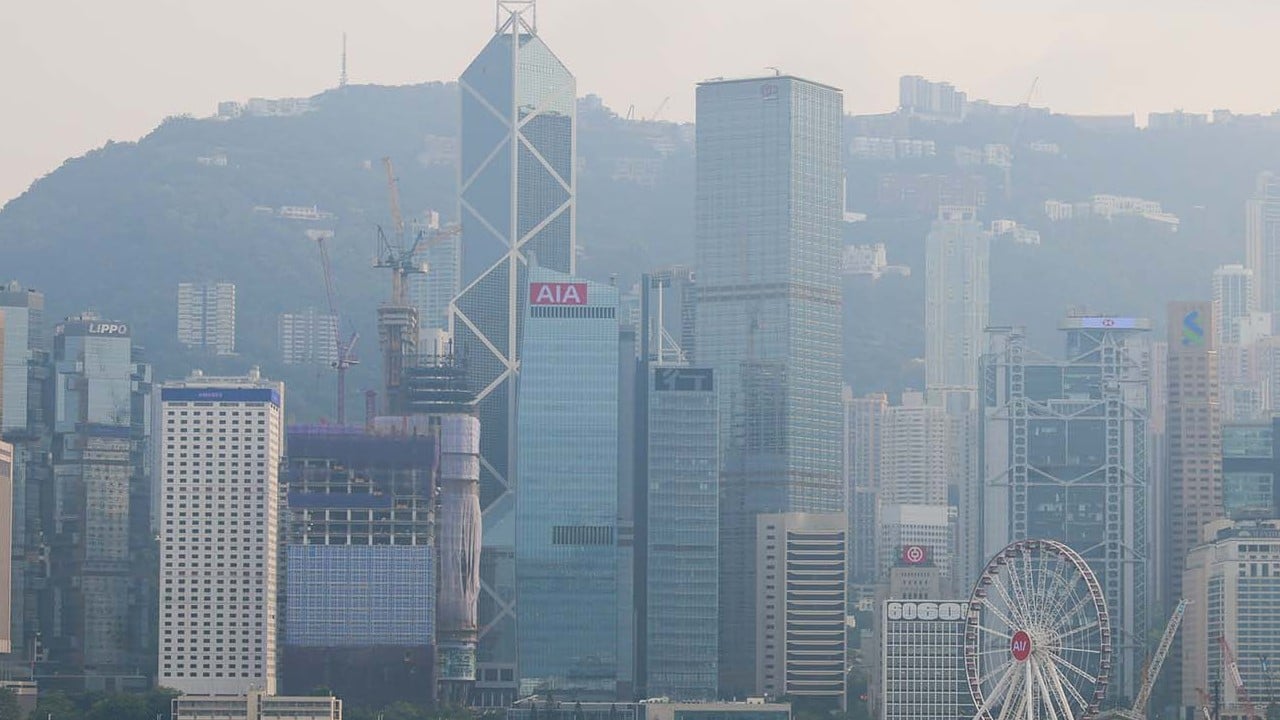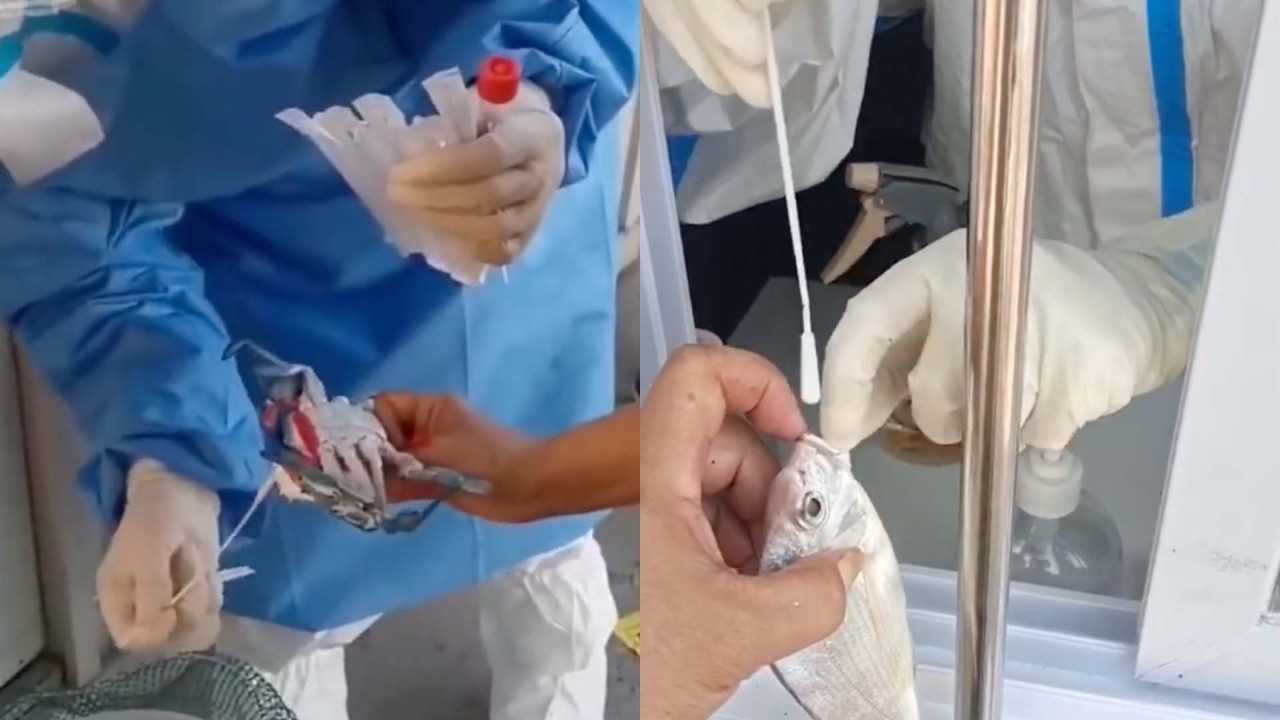
Hong Kong’s lifting of quarantine could help mainland China map path out off zero-Covid
- The decision to end hotel quarantine for travellers has been described as overdue, but it is not expected to make much difference to case numbers
- Scientists say the mainland, which is one of the few places still to impose strict controls, will remain cautious about opening up
Hong Kong announced on Friday that it would scrap mandatory hotel quarantine for international travellers, requiring them instead to undergo three days of monitoring at a location of their choice.
Mainland China is now one of the last places in the world to keep strict Covid-19 controls in place, and still quarantines every positive community case.
However, it recently cut the quarantine period for overseas travellers to seven days plus three days of medical surveillance.
“Perhaps the experience in Hong Kong can be used to inform a future relaxation of travel measures in the mainland,” said Ben Cowling, chair professor of epidemiology at the University of Hong Kong.
Hong Kong residents celebrate end of dreaded hotel quarantine measures
Some mainland internet users expressed the hope that Hong Kong’s experience might provide some valuable data for the mainland.
“It is good. There is no way for Hong Kong to return to zero-Covid anyway. Let’s lie flat and get some data for ourselves,” one internet user wrote on Weibo, using a mainland reference to living with Covid.
But Jin Dongyan, a virologist with the University of Hong Kong, said Hong Kong could withstand the opening more easily because much of the city’s population already had hybrid immunity – caused either by vaccines or infections – after several outbreaks this year.
“Hong Kong can take advantage of ‘one country, two systems’ and experiment with pathways for the mainland by showing Beijing how things would look [after opening up],” Jin said.
“However, Hong Kong is different from the mainland because the mainland has not experienced massive outbreaks like those in February and March in Hong Kong.
“A massive outbreak will not take place in Hong Kong because of society’s hybrid immunity.”
Dale Fisher, a senior infectious diseases consultant at the National University Hospital in Singapore, said the impact on case numbers of removing quarantine would be small.
“There might be 100 imported cases versus maybe 20,000 cases in the community, you are not going to notice the differences in the numbers,” he said.
The number of community cases recorded in Hong Kong at present is around 5,000 to 7,000 a day, but Fisher said there may be under-reporting.
“You can start having conferences and tourism and things like that, because people will start to come back, knowing that they don’t have to do that three days of quarantine. You’ll see the recovery in the economy. But I don’t think you’ll see a big downturn in your Covid numbers,” he said.
Chinese censors quell Covid-19 criticism sparked by fatal crash
Cowling described the relaxation as “overdue”.
“If hotel quarantine and other travel-related measures had ended six months ago, I think there would have been very little difference in our local Covid case numbers over the past six months, because travel measures are most important when we have zero daily cases and don’t have much importance when we have hundreds or even thousands of local infections each day,” he said.
Jin said the mainland should be prepared to face major outbreaks sooner or later and should plan how to minimise the impact.
“If the mainland continues to stick to zero-Covid, the pressure will only grow bigger,” he said. “If you never go through a large outbreak, you will never cross the barrier.
“Now if you are willing to face them and open up, and find ways to minimise the damage, then it could be like the case of Hong Kong.”
Fisher said one exit strategy was to allow the disease to go through the population gradually.
“You’re going to have a surge, but the question is how. The disease has to go through the population. And if you let it go through the population very quickly, then you’re going to find big numbers and overwhelmed hospitals,” he said.
“Whereas if you let it go through the population fairly gradually, as Singapore did over the course of maybe six or 12 months, then you still get your hospitals busy, but you don’t get so overwhelmed.”
He said: “You have to remove the restrictions eventually, it’s not sustainable to keep that sort of quarantine indefinitely. I am sure when China does decide to do it, they’ll take the gradual approach. They’re not just going to take the sort of European approach of undoing all the restrictions very quickly.”
‘Ideology is trumping the economy’, EU chamber in China warns foreign firms
Fisher said vaccination rates among the elderly would also be an important consideration, as well as the use and timing of booster jabs.
Hong Kong will continue to track positive cases, using contact-tracing apps to identify and quarantine close contacts – measures many places, including Singapore, have already scrapped.
Fisher said: “It would be worth doing something simpler. People can sort of self-identify household contacts, for instance. But I’d be surprised if the current app-based contact-tracing was very effective.”
He said Singapore managed to achieve a “soft landing” when opening its borders because of its insistence on certain measures, such as masking, after it abandoned quarantine and contact tracing.
“I think the explanation for Singapore’s soft landing was that we were very conservative with removing the mask mandate,” he said.
“We were also quite conservative with the numbers that could get together, particularly in settings like restaurants and coffee shops.”






